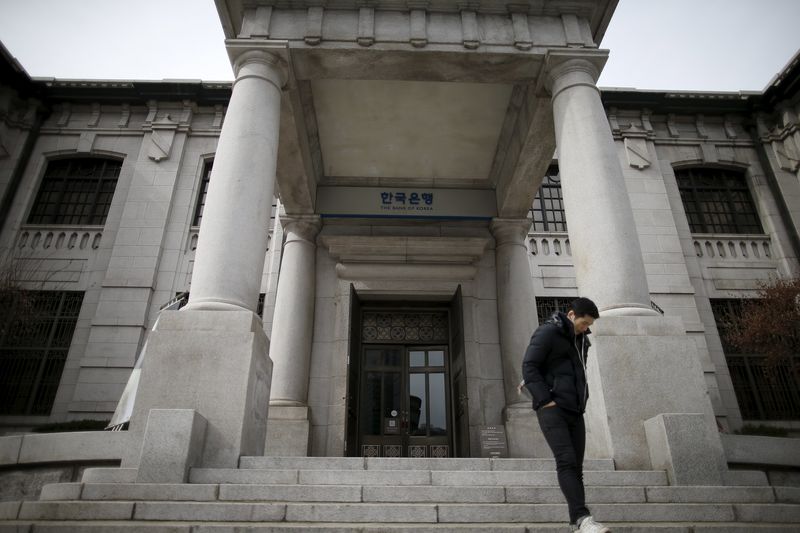(Bloomberg) -- The Bank of Korea is expected to keep its benchmark interest rate unchanged Friday, with board members preferring to monitor the impact of July’s rate cut on the economy and financial markets before considering any further action.
All but three of 25 economists surveyed by Bloomberg forecast no change to the seven-day repurchase rate, following the July 18 decision to lower the rate by 25 basis points to 1.5%. The others expected a cut. A separate Bloomberg News survey showed a majority of analysts expecting a further easing later in the year.
South Korea’s economy is reeling from weaker global tech demand and the fallout of the U.S.-China trade war, as well as uncertainties from its own trade spat with Japan. The BOK’s latest economic growth projection of 2.2% for this year already looks optimistic, with a growing number of economists eyeing a sub-2% expansion. BOK Governor Lee Ju-yeol has already hinted at the possibility of another forecast downgrade.
Yet, the governor and his fellow board members are unlikely to deliver a back-to-back rate cut as such action might signal the economy is in crisis, according to Barclays (LON:BARC) Plc. The last consecutive cuts occurred during the global financial crisis. Waiting to see what action the Federal Reserve takes in September also favors keeping policy settings on hold for now.
Central bank watchers will scrutinize the policy statement and the governor’s comments for clues on if, and when, another rate cut will take place.
Economic Gloom
While the economy rebounded more than expected in the second quarter following its worst contraction since 2008, signs of weakness persist. South Korea’s exports have continued to tumble while consumer sentiment slides.
The BOK’s next forecast update is due in November, so Friday’s focus will be on the governor’s confidence, or lack of it, in the current projections.
An unexpected cut on Friday would mean the BOK sees significant economic risks. Lee said earlier this month the BOK may consider responding with monetary policy if rising trade tensions took a bigger toll on the economy.
Next Step
If the decision is a hold as expected, investors will regard any dissenting votes as a signal for near term policy change. With Lee having advocated the need for a larger fiscal policy role, whether he sees the 2020 budget as sufficient will also be of interest.
As the BOK mulls its next step, the board will also weigh threats to the economy and financial risks from cheap borrowing costs. Perhaps easing the board’s concern on the latter issue, household debt grew last quarter at the slowest pace since 2004.
The BOK may also be reluctant to cut rates again before the Fed’s own meeting in September. South Korean officials are wary of increasing the interest-rate gap differential with the U.S. since that could spark capital outflows.
Won Weakness
South Korea’s won weakened the most against the dollar this quarter among regional peers, one of the reasons cited by analysts predicting no policy change for Friday. The rapid depreciation prompted officials to pledge necessary steps. Further comments from Lee could swing markets during Friday’s trading hours.
The bank’s policy announcement typically comes around 10 a.m. in Seoul, followed by a written assessment of the economy and inflation. Lee provides details in a press briefing from around 11:20 a.m.
